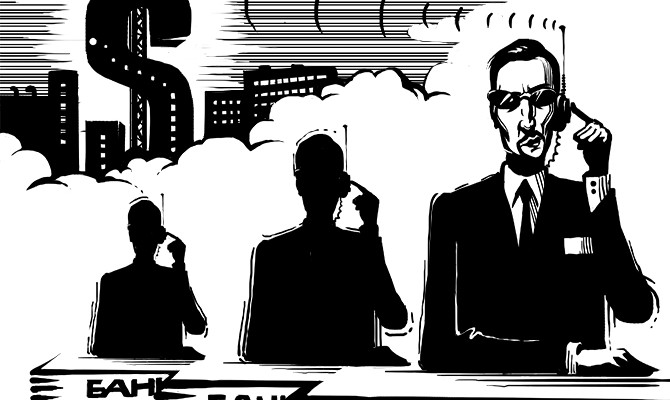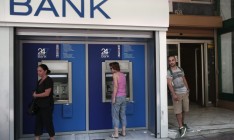Finance
taxesUkrainian banks to transfer client information to the U.S. tax authorities

The Foreign Account Compliance Act – FATCA, a U.S. federal law, takes force on July 1, 2014. Its effect applies to all countries. Financial structures joining the program of information exchange must now provide data on their clients, both private and legal entities, who are obligated to pay taxes to the U.S. Internal Revenue Service (IRS). The document was adopted by the U.S. Congress back in May 2010 in order to uncover and prevent tax evasion through depositing of funds in “non-American financial institutions”.
Everybody’s covered
Overall, 117 Ukrainian banks joined the American program (see the list on www.capital.ua). “Starting from July 1 the bank shall be introducing a number of measures aimed at the observance of FATCA provisions, in particular those that involve in-depth identification of existing and new clients that fall under the requirements of the law. Observing FATCA is a strategic task of UkrSotsbank and the UniCredit group in general,” said Oleksandra Volodina, Project Manager at UniCredit Bank, which also joined the information exchange program.
The financial institutions that will collect, filter, group and transfer information about tax residents of the U.S. will be recognized as legal and will operate freely in the dollar zone and those who will not “report” to the U.S. tax authorities will be the ‘bad guys’. The IRS will charge them a 30% commission on any transfer in dollars. “It is not difficult to do taking into account that all records on transfers are made in the U.S.,” says Andriy Repa, Tax Practice Deputy Director at Baker Tilly (Ukraine).
All non-cash dollar payments are controlled and effectuated exclusively through U.S. banks. Other financial institutions have corresponding accounts in these banks. The exceptions are countries, where currency payments are effectuated exclusively through the national bank. Transfer of non-cash dollars – this is only two records in the U.S. banking “grainery” books, explains Repa. Starting from 2017, banks that are considered legal, but continue to cooperate with the “bad” banks, will also fall under this category. That is why a foreign mother bank may experience problems with dollar payments, if a Ukrainian daughter structure failed to join the FATCA. All this forces Ukrainian banks to actively join the U.S. system of disclosing tax information in order to avoid having such problems.
Wide open
The status of a U.S. tax resident is a broad notion. Not only citizens of the U.S. and companies registered there fall under this category, but also Ukrainians who spent over 183 days on the U.S. territory within the period of one year or those who own property in the U.S. Moreover, the definition of this status also threatens those Ukrainians who acquired shares of the American companies.
“As for non-citizens of the U.S., who own shares in U.S. companies, the situation is not clear, but they will fall under the category of U.S. tax residents a priori, possibly with some limitations,” commented Repa.
As for legal entities, financial institutions must annually provide information on those companies that directly or indirectly have 10% or more of their capital owned by U.S. tax residents.
As of March 31, 2014, the assets of U.S. citizens in Ukrainian companies amounted to UAH 1.269 bn. “We subconsciously do not see the majority of these companies as American,” noted Repa. Also, the majority of online traders on eBay and other online stores will be given the status of tax residents of the U.S.






 of the agreement of syndication with Financial Times Limited are strictly prohibited. Use of materials which refers to France-Presse, Reuters, Interfax-Ukraine, Ukrainian News, UNIAN agencies is strictly prohibited. Materials marked
of the agreement of syndication with Financial Times Limited are strictly prohibited. Use of materials which refers to France-Presse, Reuters, Interfax-Ukraine, Ukrainian News, UNIAN agencies is strictly prohibited. Materials marked  are published as advertisements.
are published as advertisements.